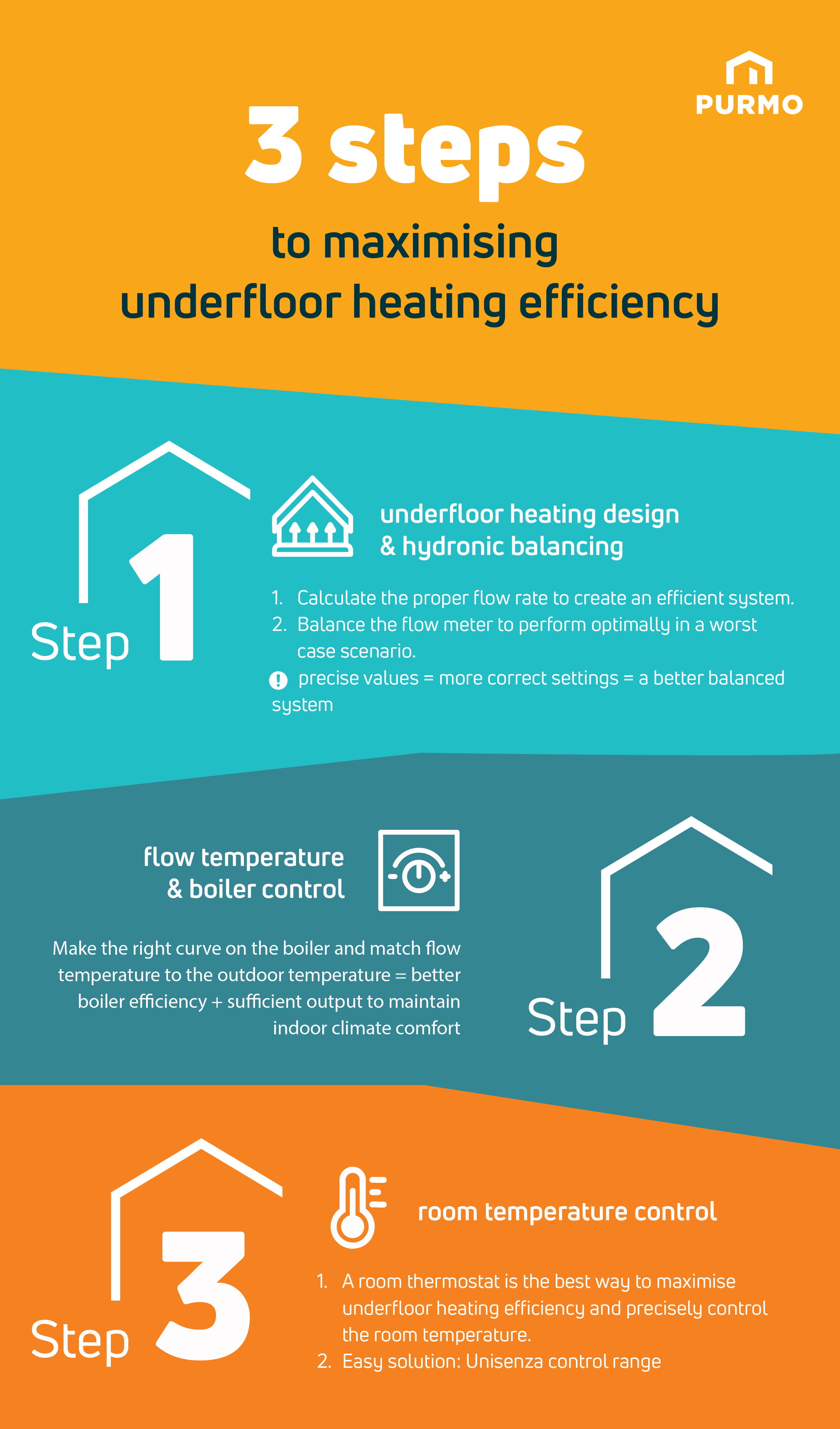- Work smarter
- Product info
- Underfloor heating
- Tools and Services
3 steps to maximising underfloor heating efficiency
Step 1: underfloor heating design & hydronic balancing
To ensure an underfloor heating system doesn’t transmit too much or too little heat to the room, it’s important to set the correct flow rate on the manifold. There are some calculations involved here as several factors impact the flow. Ranging from the room area, preferred room temperature and type of floor covering to the heat demand and piping distance, every cog in the wheel is important to create an efficient system that runs smoothly.
To avoid inefficiency or unnecessary adjustments afterwards, the flow setting should be calculated based on the most accurate figures possible. In practice we see, for example, that the heat demand is often a rough estimation made on the basis of general guidelines. However, tools like our heat demand calculator help you to determine the value more precisely, resulting in a more correct setting and a better balanced system from the start.
Naturally, you can only balance the flow meter for one situation. Therefore, the value on the underfloor heating manifold is generally set to allow the system to provide sufficient heat on the coldest day(s) of the year. This means that every valve on the manifold is completely open and the underfloor heating flow rate is at a maximum.
Step 2: underfloor heating flow temperature & boiler control
“The hydronic balancing we have just described is the minimum standard in underfloor heating design to create a well-functioning system. Although the underfloor heating is then set to perform optimally in a worst case scenario, in reality the heat demand is very often lower due to higher outdoor temperatures. With the right controls it’s easy to adapt the underfloor heating flow rate to changing temperatures. This will prevent the room from being overheated and ensures energy isn’t consumed unnecessarily”, says Olaf Kloetzel, Product Manager Radiant Heating and Cooling at Purmo.
A boiler equipped with weather compensation control, for example, allows users to reduce the flow temperature when the outdoor temperature increases. Making the right curve on the boiler and matching the flow temperature to the outdoor temperature, helps to improve the boiler’s efficiency while ensuring that it still provides sufficient output to the underfloor heating system to maintain indoor climate comfort.
Discover our various floor heating systems
Step 3: underfloor heating room temperature control
Although boiler control is already a step forward from standard balancing, the best way to maximise underfloor heating efficiency and precisely control the room temperature is to invest in a room thermostat. Olaf explains: “Room control helps to cover the effect of internal and external heat gains. It closes the actuators to reduce the flow rate and the room temperature whenever necessary and opens them again when the temperature gets too low. A room thermostat allows users to set a very exact room temperature and is simply the best solution to ensure indoor climate comfort at all times”.
Our Unisenza control range, for example, includes 3 different types of room thermostats so that the control can really be tailored to the user’s needs and preferences. We offer an easy electronic dial thermostat, a modern digital thermostat and a WiFi thermostat with clock and plug & play APP control. A simple pairing of the latter to the WiFi router enables remote control via the intuitive Unisenza app. This way users can control their ideal room temperature, time programs and other settings wherever and whenever they want.
Discover our Unisenza underfloor heating controls
Infographic underfloor heating efficiency

Should you have any questions about underfloor heating efficiency or need help to optimise the system in a particular setting, don’t hesitate to reach out to our experts. We are happy to assist you in any way we can.

